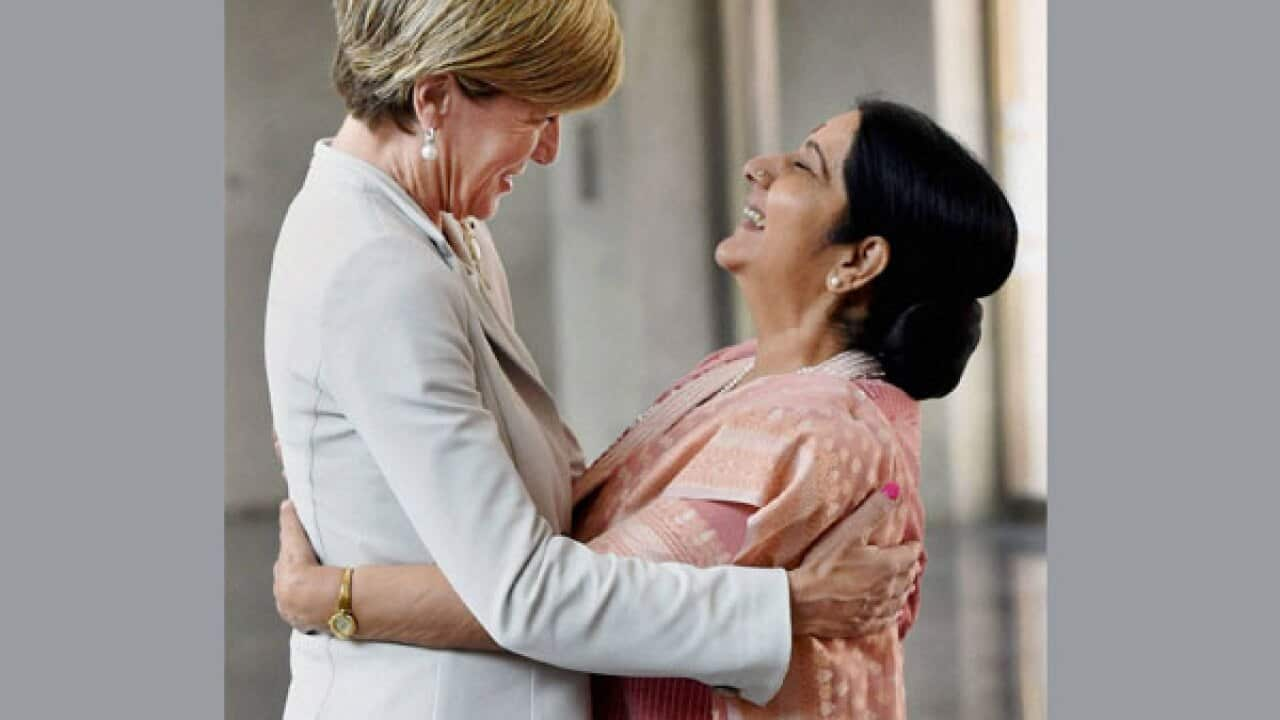Foreign Affairs minister Julie Bishop called on India’s Prime Minister Narendra Modi on Tuesday during her two day visit to India.
The stand-off between India and China was discussed during her meetings with Prime Minister Narendra Modi and senior cabinet ministers, Hindustan Times reports.
She called for a peaceful resolution of the standoff between Chinese and Indian troops at Dokalam in Sikkim sector.
"My understanding is this it is long-standing dispute...It was a subject of discussion today. Australia's position is that border disputes, territorial disputes should be resolved peacefully between the claimant countries...We don't want to see any escalation of tensions which could lead to a miscalculation or misjudgement," Bishop told reporters.
The visiting minister also said, "In the case of maritime disputes we said it should be subjected to arbitration under the UNCLOS (United Nations Convention on the Law of the Sea), if necessary. Land disputes should be resolved peacefully between the competing claimants and urge the countries to do that."
Earlier she met with India’s External Affairs Minister Sushma Swaraj and Defence Minister Arun Jaitley.
HT reported Bishop spoke about counter-terrorism, the continuing negotiations over a bilateral free trade agreement, Australia’s role as an energy supplier to India and two types of new temporary work visas that Canberra has introduced to replace the older 457 visa category.
She also spoke about Australia's first shipment of uranium supply to India.
"First shipment is on its way," she said when asked about the status of supply of uranium to India.
When asked about India not allowing Australia to join the Malabar naval exercises, Bishop said, "It's not upsetting, it is a question of priorities for each country...Australia conducts many exercises that India is not a part of. We said Australia would like to be part of Malabar exercises in the future. We are all working together to maintain relative peace and security and stability in our region," she said.
Australia Signs The Solar Alliance
Bishop signed The Solar Alliance, led by the Governments of India and France, which is aimed to deepen cooperation on solar research and development, financing mechanisms, and diffusion of solar technology amongst countries in the tropics.
“It will help broaden energy access, as part of a mix of affordable and secure energy sources, as nation’s work to meet emissions targets under the Paris Agreement,” minister Bishop said.
“In sun-rich countries like Australia and India, solar energy has significant potential to help meet the energy demands of growing economies.
“Australia is known for its leadership in the solar sector. As a continent rich in solar resources, Australia has significant expertise in remote electrification and developing innovative financing models.
“Australia joins 34 other countries in signing the Solar Alliance framework agreement. In joining, Australia looks forward to collaborating with India, France and other members to play a leading role in the Solar Alliance,” a release said.
Share




